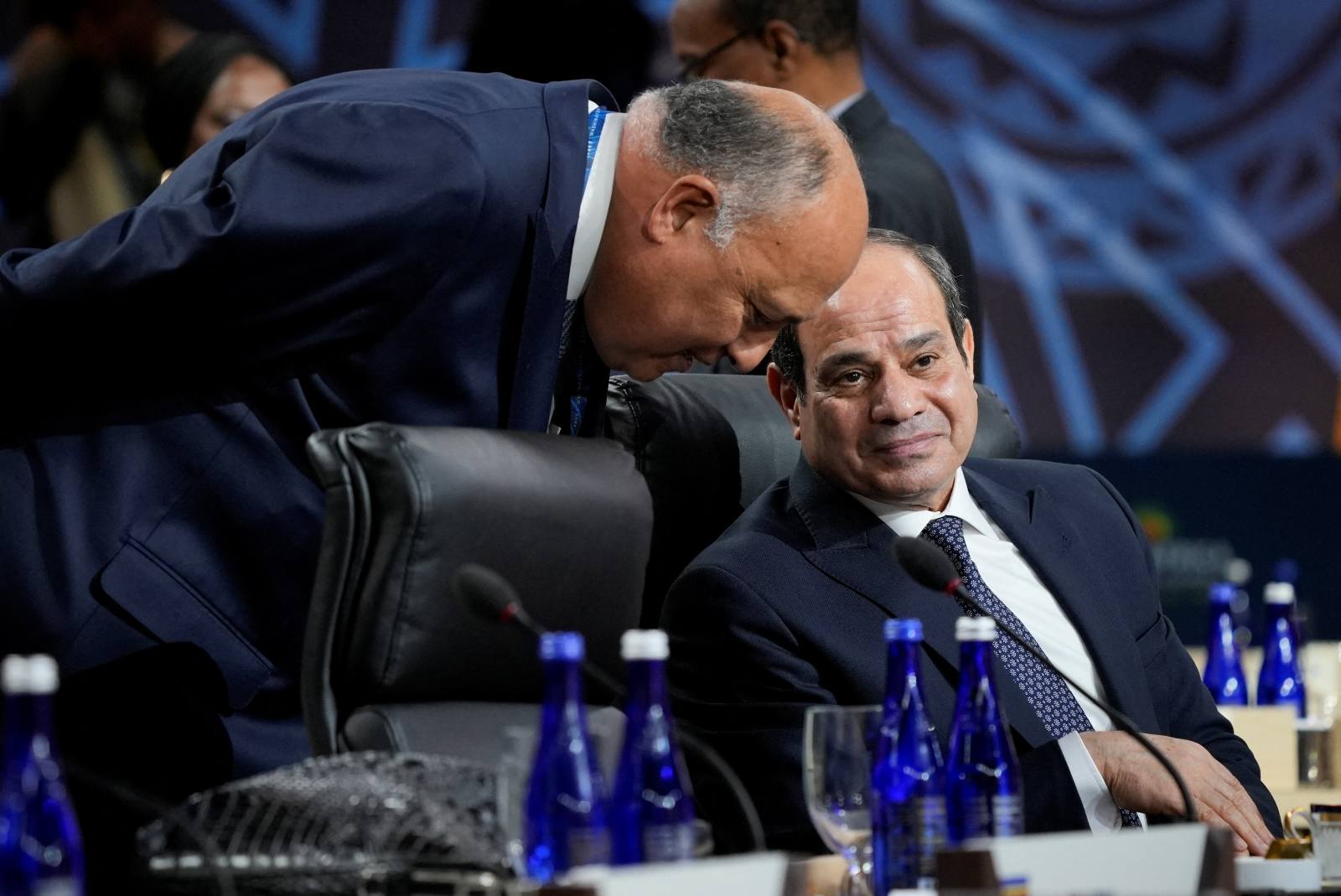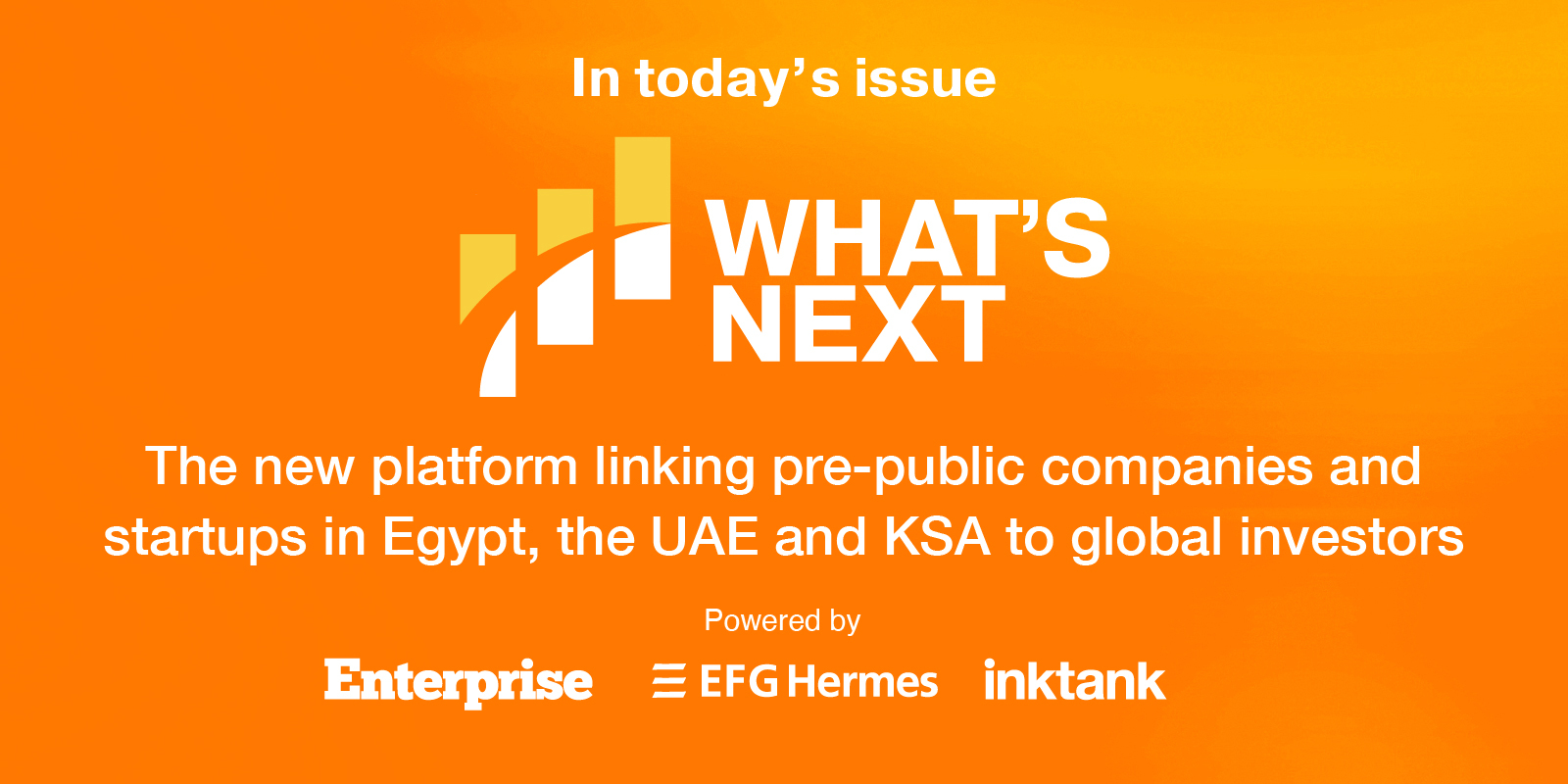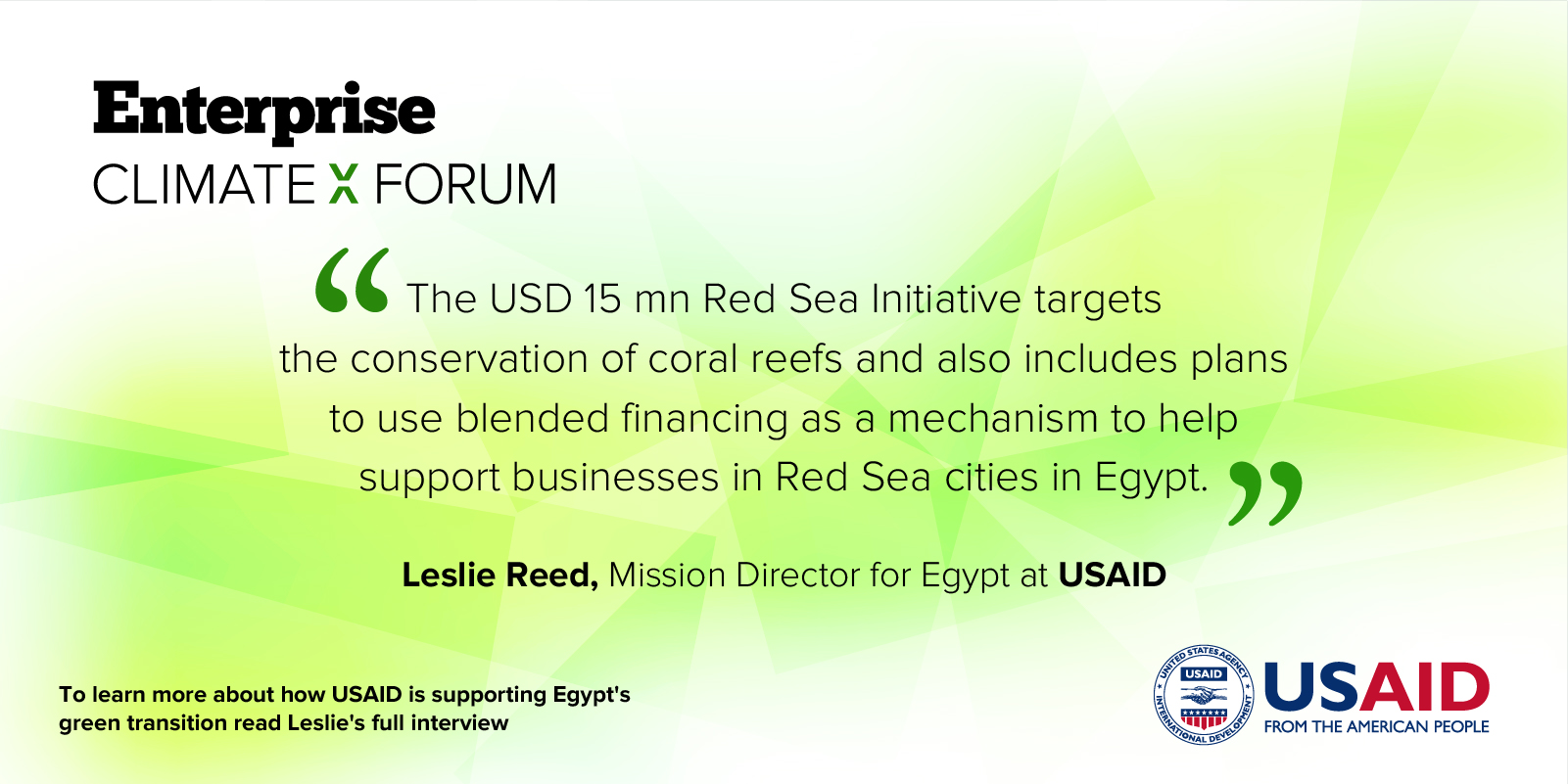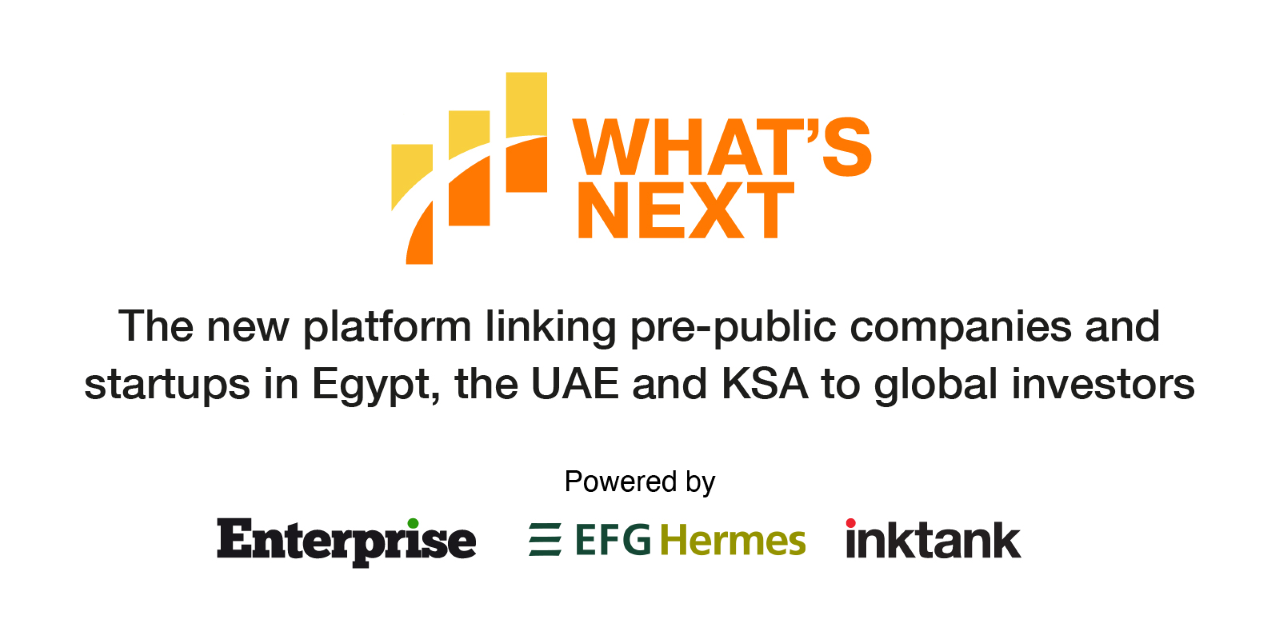- IMF approves USD 3 bn loan program for Egypt. (Economy)
- CBE to raise interest rates this week. (Poll)
- valU to spend USD 25 mn on regional + product expansion. (Non-Banking Financial Services)
- GAFI has a new CEO. (Moves)
- Hospitality logistics startup Suplyd bags USD 1.6 mn pre-seed for expansion. (Startup Watch)
- El Molla confirms large East Med gas find. (Energy)
- It’s Argentina v France, Messi v Mbappe in the World Cup final tonight. (What We’re Tracking Today)
- A year of reckoning for Planet Startup. (What’s Next)

Sunday, 18 December 2022
AM — IMF approves USD 3 bn loan program for Egypt
TL;DR
WHAT WE’RE TRACKING TODAY

Good morning, wonderful people: We might be reaching the twilight of 2022 but the news flow is showing no signs of slowing down.
WHAT’S HAPPENING TODAY-
It’s the World Cup final tonight: Argentina and France will face off in the final of the World Cup at the Lusail Stadium at 5pm tonight. France are bidding to become the first team to retain the trophy since Brazil in 1962. Meanwhile, the Argentinians are looking to claim their World Cup victory since Maradona led his country to victory in 1986. And with this likely being his final opportunity to win the trophy, tonight’s game is set up to be the defining match of Lionel Messi’s international career.
Coming in third and fourth: Croatia beat Morocco 2-1 in the third-place play-off yesterday, sealing themselves third place four years after becoming runners-up in Russia.
The House is back in session this week following a 12-day break. Here’s what’s on the agenda:
- Today: The House will discuss legal changes that would allow the government to bring companies to develop the Tahya Misr 1 terminal at Damietta port. A consortium of three European firms signed an agreement with the port authority earlier this year which will see them invest USD 500 mn to build the terminal. It will also hold votes on amendments to the Unified Tax Procedures Act.
- Tomorrow: MPs will vote on amendments to the Suez Canal Authority law that would establish a EGP 10 bn investment fund.
- Tuesday: Agriculture Minister El Sayed El Quseir will face questions from MPs on food security amid the war on Ukraine, inflation and climate change.
THIS WEEK-
EGX-listed Pachin will brief shareholders on acquisition offers it has received in its ordinary general assembly on Tuesday, 20 December. Dubai-based National Paints Holdings has offered to purchase 100% of the company for EGP 29 per share, valuing it almost EGP 700 mn and far outbidding earlier offers from Universal Building Materials and Chemicals (Sipes) and Saybad Industrial Investment that have since been withdrawn.
|
PSA #1- E-invoicing deadline pushed until the end of the month: Companies have until the close of play on 31 December to register with the Tax Authority’s e-invoicing system, after the Finance Ministry pushed the deadline from Thursday. Only 150k companies had signed up to the new system as of the end of November, well below a sought goal of 1 mn companies to register under the system.
REMEMBER- The self-employed have a later deadline: The Finance Ministry pushed the deadline for self-employed professionals — including doctors, pharmacists and lawyers — to 30 April 2023 after widespread opposition to the system.
PSA #2- Local banks have been granted another year to increase micro, small, and medium enterprises’ share of their loan portfolios by five percentage points to 25%, according to a central bank directive (pdf). Banks now have until 31 December 2023 to comply with the requirement, instead of until the end of this year. The central bank first announced the requirement in February 2021 as part of its financial inclusion strategy, which includes SME support as one of its key pillars.
*** It’s What’s Next day: We have our weekly deep-dive into what makes and shapes pre-listed companies and startups in Egypt, the UAE and KSA, touching on investment trends, future sector insights and growth journeys.
In today’s issue: A year of reckoning for startups: Our year in review on Startupland dives into the myriad challenges startups and investors faced over the course of 2022 — and how they’ve managed to stay afloat despite the turbulence.
Somabay brings out the best in majestic natural elements where raw beauty and endless activities reign supreme. Immerse yourself into a picturesque getaway all year long. This is simply Somabay. For more information, call 16390 or visit www.somabay.com.
ECONOMY
We got the IMF package — now here’s what we need to do

The IMF has approved a USD 3 bn loan for Egypt, which is expected to unlock bns of USD of vital funding as the country struggles amid global headwinds. In a statement Friday, the Fund’s executive board said it had signed off on the 46-month extended fund facility (EFF) agreed in October and that it would immediately disburse USD 347 mn of the loan to “help meet the balance of payments needs and provide support to the budget.”
We could get up to USD 18 bn in total: The EFF will “catalyze additional financing of about USD 14 bn from Egypt’s international and regional partners, including new financing from GCC countries and other partners through the ongoing divestment of state-owned assets as well as traditional forms of financing from multilateral and bilateral creditors,” the statement said. We could also be getting a separate USD 1.3 bn from the IMF’s resilience and sustainability trust, pending further EFF reviews.
That’s double what we were expecting: The IMF said in October that the facility would unlock USD 5 bn in additional funding, but yesterday increased that figure to USD 14 bn. The Fund did not disclose where the additional USD 9 bn will come from.
REMINDER- The staff-level agreement reached in October was announced in tandem with a 200-bps interest rate hike and a large devaluation of the EGP, the second such move of 2022 which has seen the currency fall almost 57% against the USD.
There’s no such thing as money for nothing: In return for the facility, Egypt has agreed to drive home policy and economic reforms designed to strengthen its resilience against external shocks, restore its FX buffers and promote private-sector-led growth.
The laundry list:
- A “permanent shift to a flexible exchange rate regime”;
- Monetary policy reforms including ending subsidized lending programs;
- A combination of “fiscal consolidation and debt management” and increased social spending to protect vulnerable citizens;
- “Wide-ranging structural reforms” to reduce the state’s role in the economy.
A “PERMANENT” FLEXIBLE EXCHANGE RATE?
Forget a “durably” flexible FX rate — we’re talking permanent now: The IMF emphasized a “permanent shift” to a flexible exchange rate in its laundry list of requirements for the support package, upping the language from October when it had highlighted the need for a “durable” FX rate regime. “Permanent” raises the stakes even higher: there can be no repegging further down the line, ever.
The rationale: “A heavily managed exchange rate has not served Egypt well,” the IMF wrote in background on Egypt. “It has led to periods of building imbalances, which in turn, have led to the loss of central and commercial bank foreign currency assets, rationing of foreign currency, forcing the central bank to abruptly devalue the EGP relative to other currencies.” Egypt first moved to a floating exchange rate in 2016 but repegged the currency in the wake of the global economic crisis triggered by the covid-19 pandemic in 2020. The central bank allowed the currency to devalue against the USD in March but continued in a managed float up to the end of October when it went ahead with the second devaluation.
The IMF says we’re on the right track: “The authorities’ recent commitment to a durable shift to a flexible exchange rate regime and to unwind prior policy distortions … are welcome steps,” IMF chief Kristalina Georgieva said.
Could there be another devaluation? There has been plenty of chatter of another devaluation in recent days on the back of rising USD rates in the parallel and derivatives markets. As of last week, the EGP was changing hands at 32-33 to the USD in these markets, up c.30% from the current official rate.
REDUCING INFLATION + STRENGTHENING MONETARY POLICY-
The IMF wants the CBE to end subsidized lending schemes to increase the efficacy of monetary policy. The central bank has in recent years subsidized low-interest loans for key sectors of the economy, programs which reduce the effectiveness of interest rate policy as a tool for controlling the money supply and influencing inflation.
The government has already moved on this front: The Madbouly government announced last month that the central bank would have to stop providing the funding for subsidized loans and pass the responsibility to ministries.
Soaring inflation makes this all the more important: The currency devaluation and spillover effects from the war in Ukraine pushed inflation to its highest level in five years in November. Economists now expect inflation to surpass 20% in 2023 which will likely require the central bank to further tighten policy.
PRIVATIZATION + TRANSPARENCY-
The IMF’s language on the state has also shifted from October: The Fund now expects authorities to “level the playing field” between state-owned enterprises and private-sector firms, as well as rolling back state involvement in the economy. In October, it called for a “more robust competition framework.”
Enter the state ownership policy and privatization program, which the government says will more than double the private sector’s role in the economy to 65% over the next three years, and attract USD 40 bn in private investment by 2026. The government has been working on a state ownership document since May, holding consultations with public- and private-sector representatives, and discussing plans during the Egypt Economic Conference in October.
We’re still not sure what the plan is, though: The ownership document is expected to go into effect at the end of this year having been approved by the cabinet last month, but no details have been made public by government ministers. In a statement yesterday, the cabinet said the plan included the “speedy issuance and announcement” of the ownership policy.
Privatization has accelerated this year in response to the economic shock caused by the war in Ukraine: The state has sold upwards of USD 4 bn worth of state-owned shares of companies to Gulf sovereign wealth funds and the Sovereign Fund of Egypt is working on a plan to take to market more than 40 projects worth around EGP 140 bn to regional and international investors.
The government has committed to a number of structural reforms to improve transparency on the government’s involvement in the economy, the Fund said in an adjoining FAQ. State-owned enterprises must submit financial accounts to the Finance Ministry twice a year, and a report on tax breaks, exemptions, and incentives they have received once a year, the lender wrote. It will also need to make public audit reports on its financials, any procurement contracts that exceed EGP 20 mn, payment arrears, and monthly budget outturns.
Our take: It’s great that we’re finally taking the private sector and the potential of its contributions to the economy seriously, but it is not enough for government officials to speak in general terms with CEOs coming in for a quick visit about how open Egypt is to FDI. We need to create an independent investment promotion agency that speaks the language of global business, as we’ve said in our five-step recipe to bring in USD 50 bn worth of FDI per year while transforming us into an export powerhouse.
DEBT MANAGEMENT + SPENDING-
The facility aims to reduce public debt to less than 80% of GDP in the medium term, cabinet said yesterday. The government had been planning to reduce the debt-to-GDP ratio to 84% for the current fiscal year, though it expects the figure to land near 90%.
Maait said as much back in October: Speaking at the Egypt Economic Conference, Maait said the government is targeting a 72% debt-to-GDP ratio by FY 2026-2027 (one fiscal year after the IMF facility ends), and a primary surplus of 2.3%, up from 1.3% in FY 2021-2022.
More social protection in the pipeline: The facility focuses on expanding the cash transfer program Takaful and Karama to take an extra 5 mn families under its wing, expanding the reach of the Universal Health Ins. System, and protecting the purchasing power of the lower class and pensioners, cabinet said in a separate statement.
The story got attention in the foreign press: AP | Reuters | Bloomberg | CNN.
POLL
CBE to raise interest rates this week – poll

The Central Bank of Egypt is likely to raise interest rates when it meets on Thursday thanks to rising inflation, according to our interest rate poll. Seven of the nine analysts and economists we surveyed see the Monetary Policy Committee raising rates later this week, with five expecting another huge 200-bps hike.
Where rates currently stand: The overnight deposit rate currently stands at 13.25% and overnight lending rate 14.25%, while the main operation and disc. rates are at 13.75%. The central bank has raised rates by 500 bps so far this year, including a surprise 200-bps hike in October to support the currency in the wake of the devaluation, which has left the EGP down 25% against the greenback.
Continued inflationary pressures means continued monetary tightening: High inflation will likely push the CBE to go ahead with a 100 bps rate hike, Capital Economics MENA economist James Swanston said. Inflation hit a five-year high of 18.7% last month as the CBE’s decision to float the EGP hit food and beverage prices. Banking expert Hany Aboul Fotouh, a veteran of CI Capital, Arab Banking Corporation, and HSBC, predicts a 100-200 bps rate hike, on the back of November’s inflationary figures. HC Securities banking and macro analyst Heba Monir is expecting the CBE to raise rates by 200 bps in a bid to tame inflation and boost foreign inflows.
Inflation to reach its peak next year: Inflation will likely peak next year and then decelerate gradually after that, Swanston said, adding that it will remain well above the CBE’s target. “We don’t see inflation falling into the CBE’s range before mid-2024,” he said. Aboul Fotouh thinks that inflation could hit the 25-27% mark during 1Q 2023 if Egypt continues to have a hard time securing foreign currency.
REMEMBER– We’re still waiting for the Central Bank of Egypt to announce a new target range for inflation, after it previously scrapped its 7% (±2%) target.
The EGP should brace for further depreciation: “The central bank may need a quick action plan which could include a 200 bps hike and a 15% currency depreciation,” said Esraa Ahmed, economist at Al Ahly Pharos. “We believe that the government will benefit from the IMF loan, which will help secure another source for USD.” Aboul Fotouh is also bracing for a cheaper EGP, seeing that the EGP is currently trading at 32-33 against the greenback in the black market.
An emergency meeting is unlikely to happen, CI Capital’s Monsef Morsy told us, predicting 200 bps hikes during the next two meetings. “We hope that the USD coming into the country thanks to the IMF agreement (more on that above) will contribute to adding liquidity to the Egyptian banking sector,” he said, adding that he is expecting inflation to reach 20-24% over the coming four months.
NON-BANKING FINANCIAL SERVICES
EFG Hermes’ valU sets aside USD 25 mn to expand through M&A + new products

valU to spend USD 25 mn on regional + product expansion: EFG Hermes’ buy-now-pay-later platform valU expects to invest some USD 25 mn to complete its expansion to Saudi Arabia and roll out new products in early 2023, valU CEO Walid Hassouna told Zawya.
REFRESHER- valU signed a sale and purchase agreement to buy a 35% stake in new Saudi consumer finance player Fas Finance earlier this year, which will pave the way for valU to enter the Saudi market. The agreement is currently pending approval from Saudi’s central bank, according to Hassouna.
More acquisitions in the works: The company is in talks to acquire “significant” minority stakes in two unnamed firms, as well as a third company valU is looking to acquire in full, Hassouna said. valU acquired fintech Kiwe in October and digital HR and in August bought payroll platform Paynas.
New product rollouts coming next year: valU plans to roll out a new prepaid credit card that will be valid with vendors not associated with the company, Hassouna said. The card is expected to launch in 1Q 2023. valU will also launch other new services, including salary advances, as well as life and property ins., through partnerships with fintech startups already operating in these spaces, Hassouna said, without providing further details.
VALU LINKS UP WITH GEIDEA-
valU has partnered with Saudi SME fintech player Geidea, giving it access to its merchant base and integrating its payment aggregation services into its offering, according to a statement (pdf).
Geidea has been loving Egypt as of late: The Saudi fintech platform has recently partnered with foodtech startup Grubtech and Egyptian B2B marketplace Fatura to provide POS services in Egypt, while Banque Misr has signed an agreement with Geidea to provide payment and e-commerce services to its clients.
STARTUP WATCH
Hospitality logistics startup Suplyd bags USD 1.6 mn pre-seed for expansion

Local hospitality supply-chain startup Suplyd has raised USD 1.6 mn in pre-seed funding, it said in a statement (pdf) Thursday. Participants in the round included Endure Capital, Seedstars, Camel Ventures, the International Cooperation Ministry’s Falak Startups, Outlierz, Plus Ventures, Fort, Alex Angels, and other unnamed angel investors. Suplyd will use the funds to scale its tech, team, and operations, the company said.
About Suplyd: Founded in January 2022 by Gohar Said (LinkedIn), Karim Selima (LinkedIn), and Ahmed ElMahdy (LinkedIn), Suplyd’s B2B platform offers procurement, fulfillment, and payment services to hotels, restaurants, and caterers in Greater Cairo. The company’s platform and network of tech-enabled fulfillment centers aim to streamline the hospitality supply chain, minimizing waste and improving price transparency. Competitors include OneOrder, which closed a USD 3 mn seed round earlier this month.
ENERGY
El Molla confirms large East Med gas find

Oil Minister Tarek El Molla confirmed that a large gas discovery has been made in the Nargis block in the Eastern Mediterranean during a briefing to the House Energy Committee, Youm7 reported Thursday.
A report of a big gas find landed a few weeks ago: The Middle East Economic Survey reported earlier this month that a field holding an estimated 3.5 tn cubic feet of gas had been discovered by Chevron. El Molla declined to disclose any figures during the briefing, telling MPs that companies are still evaluating its size.
The Nargis block is mostly foreign-operated: US energy giant Chevron holds 45% operating interest, Italian Eni owns 45% and state-owned Tharwa Petroleum holds the remaining 10%.
We need the extra gas: Egypt is trying to maximize its exports of natural gas amid a growing shortage of FX. It is rationing its usage of gas for domestic power production and turning to other types of fuel in order to free up more gas for export. The find comes at a good time for Egypt, which has seen output fall from a peak of 7.2 bn cf per day last September to 6.5 bn cf/d in 3Q 2022, according to MEES.
EARNINGS WATCH
Qalaa Holdings remains profitable during 3Q 2022

Qalaa Holdings returned to the black in 3Q 2022, reporting a EGP 16.7 mn profit against a EGP 440.7 mn loss in the same quarter last year in its latest earnings release (pdf). Revenues jumped 86% y-o-y to EGP 23.7 bn during the quarter, driven by the Egyptian Refining Company (ERC) which made up 75% of the firm’s revenues. This is the second consecutive profitable quarter for the firm after it saw its bottom line enter the black for the first quarter since 2018 in 2Q 2022.
In detail: Subsidiary ERC’s revenues doubled y-o-y to EGP 17.9 bn during the quarter, thanks to the increase in refined petroleum product prices and improved operations. Taqa Arabia saw its revenues grow 19% y-o-y during the quarter to EGP 2.9 bn on the back of a strong performance by Taqa Petroleum, higher distribution volumes at Taqa Power and volume growth at Taqa Gas.
Heading into 2023: Qalaa is focused on reducing its risk levels and growing its revenues. “Our key focus heading in 2023 will be to continue driving EBITDA growth and build on the significant progress we have achieved when it comes to business development, cost cutting, and operational efficiencies,” managing director and co-founder Hisham El Khazindar said.
MOVES

Hossam Heiba (LinkedIn) was appointed CEO of the General Authority for Investment and Free Zones (GAFI) by Prime Minister Mostafa Madbouly, according to a cabinet statement. Heiba was previously the vice chairman and managing director of Egypt Post’s investment arm. He succeeds Mohamed Abdel Wahab (LinkedIn), who has headed up GAFI since 2019.
Bassel Rahmy (LinkedIn) was appointed CEO of the government’s Micro, Small, and Medium Enterprises Development Agency (MSMEDA) for a one-year term starting 1 January 2023, according to a cabinet statement. Rahmy has some 20 years of experience in the banking sector with a focus on SMEs and microfinance, including 13 years in retail and SME banking at Alexbank. He succeeds former trade minister Nevine Gamea, who will not see out the rest of her term, which was due to expire in July 2023. The statement did not provide information about why Gamea had exited the role early. She had been at the helm of MSMEDA since 2017.
Mouawia Essekelli (LinkedIn) was appointed managing director and board member at Attijariwafa Bank Egypt, Al Mal reports, succeeding Hicham Seffa (LinkedIn). Essekelli has 30 years of banking experience, including 17 years in leadership roles at the Attijariwafa Group across Europe and Morocco. He most recently served as president of Wafacash, the bank’s money transfer subsidiary.
LAST NIGHT’S TALK SHOWS

It was all about the IMF on last night’s talk shows following the executive board’s approval of our long-awaited USD 3 bn loan program on Friday (we have all the details in this morning’s news well, above).
The IMF agreement is no “magic wand” to solve all our economic woes but it will help pave the way for a new monetary policy, Kelma Akhira’s Lamees El Hadidi said yesterday (watch, runtime: 2:35), saying that it is within the state’s hands to learn from this economic crisis and take action towards the needed monetary policy.
What’s in it for us? “In the short-term the loan will help us resolve issues like our backlogged ports, bridge the gap between official and black market USD exchange rates and stabilize prices. These short-term plans need some USD 6-9 bn. As for the long-term, we could be looking at more inflows, higher employment rate and higher income,” El Hadidi said (watch, runtime: 3:58).
The Egyptian economy will stabilize as soon as our backlogged ports start clearing up, CIB non-executive chairman Hisham Ezz Al Arab told El Hadidi (watch, runtime: 3:28). Clearing up the ports won’t be as expensive as people believe because many importers no longer want their products and will decide to auction it off rather than going through the hassle of releasing them from the ports, he added.
Why is a flexible EGP good news? Flexible currency makes it easier for a country to absorb external shocks, Ezz Al Arab said (watch, runtime: 16:10). If the state had adopted a flexible exchange rate it would have helped lessen the USD 22 bn in outflows we saw earlier this year, he explained. Also covering the news: Masaa DMC (watch, runtime: 11:41) and Al Hayah Al Youm (watch, runtime: 5:25).
ALSO ON THE AIRWAVES-
Demand for the expat car import scheme hasn’t lived up to expectations hence the cabinet amending the process last week (watch, runtime: 19:21). The amendments came in response to complaints the state has received, customs official Ahmed Abu Bakr told Kelma Akhira. The amendments include no longer requiring buyers to deposit fees for the program three months before transfers and waiving the requirement to have the Foreign Ministry certifying residences, bank statements and other documents related to the imported vehicles data was also scrapped.
The amendments are unlikely to drum up demand for the scheme, Alaa Selim, the secretary-general of the General Union for Egyptians Abroad said, adding that devalued EGP is making it more difficult for people to partake in the program. Finance Minister Mohamed Maait had previously said that the scheme could raise up to USD 2.5 bn in FX.
PLANET FINANCE

Investors pulled bns of USD from the world’s biggest crypto exchange last week: Binance, the world’s largest crypto trading platform suffered USD 6 bn of outflows in the first of last week as investor confidence in crypto assets hit new lows following the arrest of disgraced FTX founder Sam Bankman-Fried, the Financial Times reports. Not helping matters: An accounting firm hired by Binance to conduct a “proof of reserves” report and assuage concerns about its capitalization stopped working the company.
| EGX30 | 15,142 | -1.5% (YTD: +26.7%) | |
| USD (CBE) | Buy 24.64 | Sell 24.74 | |
| USD at CIB | Buy 24.65 | Sell 24.72 | |
| Interest rates CBE | 13.25% deposit | 14.25% lending | |
| Tadawul | 10,290 | +0.4% (YTD: -8.8%) | |
| ADX | 10,328 | +1.6% (YTD: +21.7%) | |
| DFM | 3,329 | +0.4% (YTD: +4.2%) | |
| S&P 500 | 3,852 | -1.1% (YTD: -19.2%) | |
| FTSE 100 | 7,332 | -1.3% (YTD: -0.7%) | |
| Euro Stoxx 50 | 3,804 | -0.8% (YTD: -11.5%) | |
| Brent crude | USD 79.04 | -2.7% | |
| Natural gas (Nymex) | USD 6.60 | -5.3% | |
| Gold | USD 1,800.20 | +0.7% | |
| BTC | USD 16,711 | -0.8% (YTD: -63.8%) |
THE CLOSING BELL-
The EGX30 fell 1.5% at Thursday’s close on turnover of EGP 3.57 bn (143% above the 90-day average). Foreign investors were net sellers. The index is up 26.7% YTD.
In the green: Juhayna (+10.2%), Eastern Company (+5.6%) and Cleopatra Hospitals (+3.9%).
In the red: Egypt Kuwait Holding-EGP (-5.5%), Ezz Steel (-4.7%) and Sidi Kerir Petrochemicals (-4.0%).
DIPLOMACY

El Sisi meets US officials, lawmakers in Washington: President Abdel Fattah El Sisi held more bilateral meetings on the sidelines of the US-Africa summit in Washington last week:
US-Egypt defense ties and security issues were also top of the agenda in a meeting between El Sisi and White House national security adviser Jake Sullivan on Friday, according to another set of separate Ittihadiya and White House statements. Sullivan “strongly affirmed US support for Egypt’s water security, as well as for a swift diplomatic resolution on the Grand Ethiopian Renaissance Dam [GERD] that would safeguard the interests of all parties,” according to the White House readout. Their meeting came two days after El Sisi asked US Secretary of State Anthony Blinken for help to reach a legally binding agreement with Ethiopia and Sudan on the disputed GERD.
El Sisi also met with World Bank chief David Malpass on Friday to discuss help from the multilateral lender and talked security with Secretary of Defense Lloyd J. Austin, according to separate Ittihadiya and US defense department statements.
CALENDAR
NOVEMBER
20 November-18 December (Sunday-Sunday): 2022 Fifa World Cup, Qatar.
DECEMBER
19-20 December (Monday-Tuesday): The Arab Administrative Development Organization’s conference on Modern Methods in Hospital Management, Cairo.
20 December (Tuesday): EGX-listed Pachin will brief shareholders on offers received to acquire the company in an ordinary general assembly.
22 December (Thursday): Central Bank of Egypt’s Monetary Policy Committee meeting.
25 December (Sunday): Senate back in session.
31 December (Saturday): E-invoicing registration deadline.
December: Egypt to expand Sudan electricity link capacity to 300 MW.
JANUARY 2023
January: EGX-listed companies and non-bank lenders will submit ESG reports for the first time.
January: Fuel pricing committee meets to decide quarterly fuel prices.
January: Infinity + Africa Finance Corporation to close acquisition of Lekela Power.
1 January (Sunday): Use of Nafeza becomes compulsory for air freight.
1 January (Sunday): Residential electricity bills are set to rise as per the government’s six-year roadmap (pdf) to restructure electricity prices by 2025.
7 January (Saturday): Coptic Christmas.
24 January-6 February: Cairo International Book Fair, Egypt International Exhibition Center
25 January (Wednesday): 25 January revolution anniversary / Police Day.
26 January (Thursday): President El Sisi will visit India as “chief guest” at celebrations to mark the 74th anniversary of Indian independence.
26 January (Thursday): National holiday in observance of 25 January revolution anniversary / Police Day.
30 January-1 February (Monday-Wednesday): CI Capital’s Annual MENA Investor Conference 2023, Cairo, Egypt.
FEBRUARY 2023
11 February (Saturday): Second semester of 2022-2023 academic year begins for public universities.
13-15 February (Monday-Wednesday): The Egypt Petroleum Show (Egyps), Egypt International Exhibition Center, Cairo.
23-27 February (Thursday-Monday): Annual Business Women of Egypt’s Women for Success conference.
MARCH 2023
March: 4Q2022 earnings season.
23 March (Wednesday): First day of Ramadan (TBC). Maghreb will be at 6:08pm CLT.
APRIL 2023
1 April (Saturday): Deadline for banks to establish sustainability unit.
17 April (Monday): Sham El Nessim.
22 April (Saturday): Eid El Fitr (TBC).
25 April (Tuesday): Sinai Liberation Day.
27 April (Thursday): National holiday in observance of Sinai Liberation Day (TBC).
30 April (Sunday): Deadline for self-employed to register for e-invoicing.
Late April – 15 May: 1Q2023 earnings season.
MAY 2023
1 May (Monday): Labor Day.
4 May (Thursday): National holiday in observance of Labor Day (TBC).
4 May (Thursday): IEF-IGU Ministerial Gas Forum, Cairo.
22-26 May (Monday-Friday): Egypt will host the African Development Bank (AfDB) annual meetings in Sharm El Sheikh.
JUNE 2023
10 June (Saturday): Thanaweya Amma examinations begin.
19-21 June (Monday-Wednesday): Egypt Infrastructure and Water Expo debuts at the Egypt International Exhibition Center.
28 June-2 July (Wednesday-Sunday): Eid El Adha (TBC).
30 June (Friday): June 30 Revolution Day.
JULY 2023
18 July (Tuesday): Islamic New Year.
20 July (Thursday): National holiday in observance of Islamic New Year (TBC).
23 July (Sunday): Revolution Day.
27 July (Thursday): National holiday in observance of Revolution Day.
Late July-14 August: 2Q2023 earnings season.
SEPTEMBER 2023
26 September (Tuesday): Prophet Muhammad’s birthday (TBC).
28 September (Thursday): National holiday in observance of Prophet Muhammad’s birthday (TBC).
OCTOBER 2023
6 October (Friday): Armed Forces Day.
Late October-14 November: 3Q2023 earnings season.
EVENTS WITH NO SET DATE
3Q 2022: Ayady’s consumer financing arm, The Egyptian Company for Consumer Finance Services, to release its first financing product.
3Q 2022: Swvl to close acquisition of Urbvan Mobility.
End of December/early January: SFE’s pre-IPO fund to kick off roadshow.
4Q 2022: Electricity Ministry to tender six solar projects in Aswan Governorate.
4Q 2022: Raya Holding subsidiary Aman and Qalaa Holdings’ Taqa Arabia to launch their fintech company.
End of 2022: Decent Life first phase scheduled for completion.
2023: The inauguration of the Grand Egyptian Museum.
2023: Egypt will host the Asian Infrastructure Investment Bank’s Annual Meeting of the Board of Governors in 2023.
1Q 2023: Adnoc Distribution’s acquisition of 50% of TotalEnergies Egypt to close.
1Q 2023: Internal trade database to launch.
Enterprise is a daily publication of Enterprise Ventures LLC, an Egyptian limited liability company (commercial register 83594), and a subsidiary of Inktank Communications. Summaries are intended for guidance only and are provided on an as-is basis; kindly refer to the source article in its original language prior to undertaking any action. Neither Enterprise Ventures nor its staff assume any responsibility or liability for the accuracy of the information contained in this publication, whether in the form of summaries or analysis. © 2022 Enterprise Ventures LLC.
Enterprise is available without charge thanks to the generous support of HSBC Egypt (tax ID: 204-901-715), the leading corporate and retail lender in Egypt; EFG Hermes (tax ID: 200-178-385), the leading financial services corporation in frontier emerging markets; SODIC (tax ID: 212-168-002), a leading Egyptian real estate developer; SomaBay (tax ID: 204-903-300), our Red Sea holiday partner; Infinity (tax ID: 474-939-359), the ultimate way to power cities, industries, and homes directly from nature right here in Egypt; CIRA (tax ID: 200-069-608), the leading providers of K-12 and higher level education in Egypt; Orascom Construction (tax ID: 229-988-806), the leading construction and engineering company building infrastructure in Egypt and abroad; Moharram & Partners (tax ID: 616-112-459), the leading public policy and government affairs partner; Palm Hills Developments (tax ID: 432-737-014), a leading developer of commercial and residential properties; Mashreq (tax ID: 204-898-862), the MENA region’s leading homegrown personal and digital bank; Industrial Development Group (IDG) (tax ID:266-965-253), the leading builder of industrial parks in Egypt; Hassan Allam Properties (tax ID: 553-096-567), one of Egypt’s most prominent and leading builders; and Saleh, Barsoum & Abdel Aziz (tax ID: 220-002-827), the leading audit, tax and accounting firm in Egypt.










